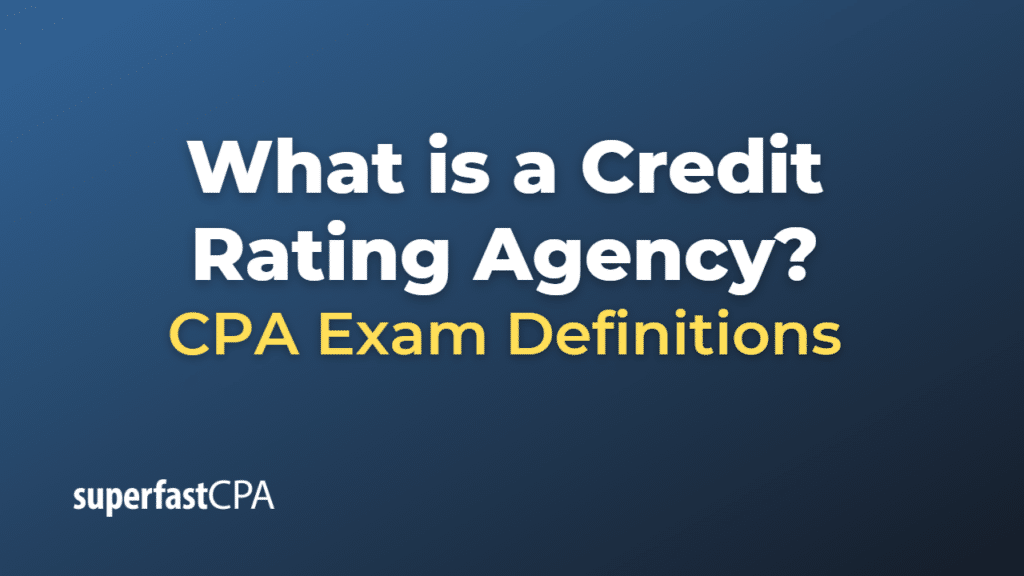Credit Rating Agency
A credit rating agency (CRA) is a company that assigns credit ratings, which rate a debtor’s ability to pay back debt by making timely interest payments and the likelihood of default. The debtors can be corporations, municipalities, or even national governments.
CRAs assess the creditworthiness of the bond issuer or the entity seeking to borrow money. The ratings they assign can influence the interest rate that a debtor will pay.
There are three major international credit rating agencies:
- Standard & Poor’s (S&P): S&P rates bonds on a scale from AAA (highest) to D (default).
- Moody’s: Moody’s ratings range from Aaa (highest) to C (default).
- Fitch Ratings: Fitch uses the same scale as S&P, from AAA to D.
These agencies have a significant influence on the financial markets. Their ratings not only affect the interest rates on the bonds being issued but can also impact the stock price of the issuing corporation. For instance, a downgrade in a company’s credit rating can cause its stock price to fall.
Credit rating agencies are subject to regulation in most countries, due to their importance in the financial system. However, they have also been criticized for conflicts of interest and for their role in the 2008 financial crisis, when many securities that had been highly rated turned out to be high-risk.
Example of a Credit Rating Agency
Let’s use the case of a hypothetical company, “AutoBuild Inc.”, that manufactures autonomous vehicles.
AutoBuild Inc. has been performing well and now wants to expand its production capacity to meet growing demand. To fund this expansion, AutoBuild decides to issue corporate bonds.
Before issuing the bonds, AutoBuild approaches three credit rating agencies: Standard & Poor’s (S&P), Moody’s, and Fitch Ratings. These agencies will assess AutoBuild’s financial health, profitability, the stability of its cash flows, the quality of its management, and the risks in its industry.
Let’s say, after their analysis:
- S&P rates AutoBuild as ‘A-‘, indicating a strong capacity to meet its financial commitments but somewhat susceptible to adverse economic conditions and changes in circumstances.
- Moody’s gives a rating of ‘A3’, which in Moody’s scale is equivalent to S&P’s ‘A-‘, indicating low credit risk.
- Fitch Ratings also rates AutoBuild as ‘A-‘, in line with the other agencies.
These ratings are made public, and potential investors use this information to help them decide whether to buy AutoBuild’s bonds. The ratings indicate to investors that AutoBuild is considered to have a low risk of defaulting on its payments, which might make the bonds more attractive to investors.
However, if any of these agencies were to downgrade AutoBuild’s rating in the future (for instance, due to declining profitability or increased industry risks), it might become more difficult and expensive for AutoBuild to borrow money, as investors would demand a higher interest rate to compensate for the increased risk.
Similarly, an upgrade in the company’s credit rating (perhaps due to improved financial performance or reduced industry risks) could make it easier and cheaper for AutoBuild to borrow, as investors would be willing to accept a lower interest rate due to the decreased risk.













